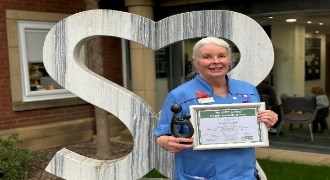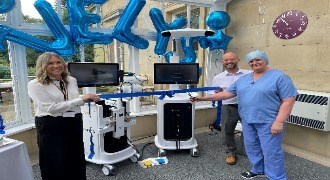Local private hospital honoured with prestigious autism award
25 February 2025
Spire Leeds Hospital delivers outstanding personalised care by committing to understanding and meeting the needs of autistic people.
We welcome your views on our website and invite you to take part in a brief survey when you've finished your visit.
Your response will help us improve the site and the experience we offer to visitors.
25 February 2025
Spire Leeds Hospital delivers outstanding personalised care by committing to understanding and meeting the needs of autistic people.
22 November 2024
A nurse from Spire Leeds Hospital, Sarah Hassane, is one of the first ever winners of the prestigious DAISY award at Spire Healthcare.

06 November 2024
To celebrate Allied Health Professions Day a physiotherapist from Spire Leeds Hospital, has been recognised with a prestigious IRIS award.
25 July 2024
When Steve Haley was told he’d never run again, fast access to treatment meant he was able to complete the 2024 London Marathon just a few years later.

20 June 2024
Spire Leeds Hospital is proud to be the second facility in the UK, and the first in Yorkshire to offer VELYS™ robotic-assisted surgery.

12 December 2023
Continued service development at Spire Leeds Hospital delivers the highest quality of care in endoscopy services
15 August 2022
Spire Leeds Hospital has launched a package of environmental measures as part of a major drive to become carbon neutral by 2030.
02 November 2021
Leeds North East Labour MP, Fabian Hamilton, recently visited Spire Leeds and heard about some of the new services recently introduced at the hospital.

21 September 2021
Every month Richard Danon makes a round trip of over 400 miles to receive sight-saving injections into his right eye at Spire Leeds Hospital.
